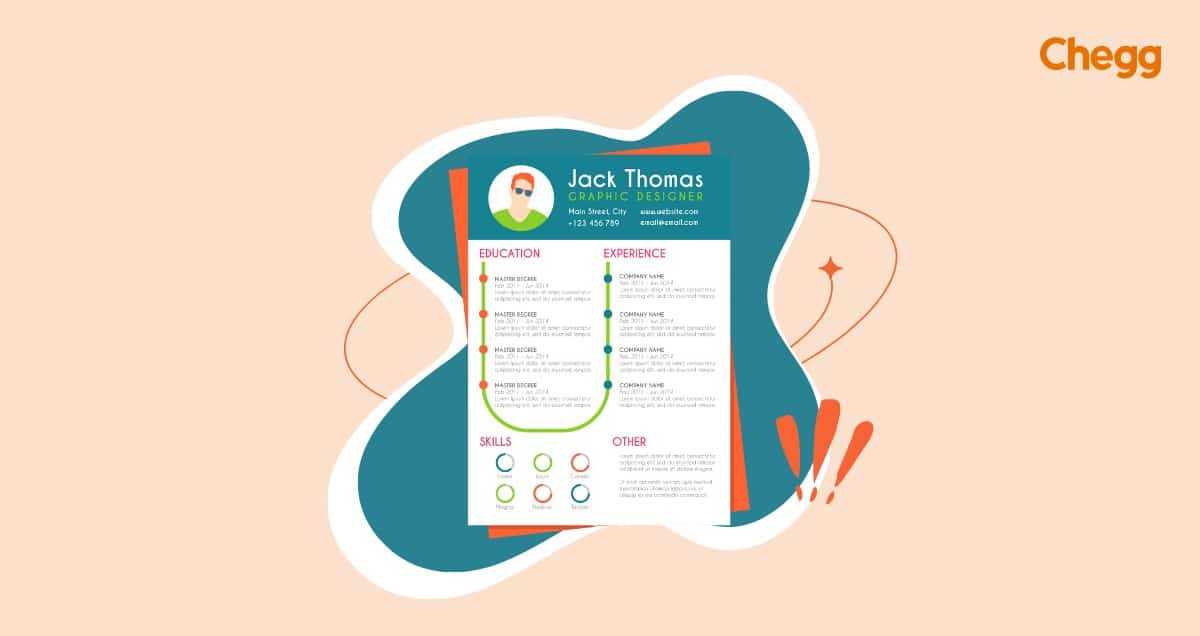What is Viva Exam: Explained in Detail
Appearing for a viva exam? Let’s first understand what exactly is a viva exam, also known as viva voice or oral examination. It is a crucial evaluation method used in academia and professional settings which involves a face-to-face assessment where candidates answer questions related to their research, thesis, or knowledge in front of an expert […] The post What is Viva Exam: Explained in Detail appeared first on Chegg India.

Appearing for a viva exam? Let’s first understand what exactly is a viva exam, also known as viva voice or oral examination. It is a crucial evaluation method used in academia and professional settings which involves a face-to-face assessment where candidates answer questions related to their research, thesis, or knowledge in front of an expert panel.
The Viva Exam provides an opportunity for in-depth discussions, allowing examiners to gauge the candidate’s understanding, critical thinking, and ability to articulate their ideas effectively. Viva Exams are designed not only to assess a candidate’s knowledge but also their ability to think critically, defend their research, and demonstrate their expertise.
This guide will equip you with valuable tips, techniques, and insights to excel in your Viva Exam, empowering you to confidently showcase your expertise. So, let’s embark on this journey together and maximize your chances of success!
How a Viva Exam is Conducted
The structure of a viva exam depends on the institution and the academy’s discipline. In general, a viva voce exam is conducted in the following ways:
- For the viva test, the student is called into a particular space.
- The viva exam is typically conducted by a panel of examiners.
- The examiner asked the question which is related to the specific topic.
- It is an oral question-and-answer session.
- The duration of viva depends on the level and the subject.
- The overall performance in the viva exam contributes to the final grading.
Purpose of Conducting a Viva Exam
The viva exam is a mandatory requirement in education, especially in higher studies through research. The purpose of viva can also be described in this way:
- To ensure the knowledge of the student or candidate about the particular topic or given project.
- To evaluate student’s ability to clarify ideas verbally successfully
- Identification of critical thinking ability as well as capability of independent thoughts
- Ability to stand strongly with clear concepts in own research field in critical arguments
- To evaluate the project and understand the topic or research work, a viva exam is a perfect way.

How to Prepare for a Viva Exam
The Viva Exam is a significant milestone in your academic or professional journey, and proper preparation is key to ensuring a successful outcome. To help you navigate through this process with confidence, here are some essential steps to prepare for your Viva Exam:
1. Understand the Format of Viva
First, you have to understand what a viva exam is. Studying the requirements before a viva exam is essential since it clarifies the standards set by your academy. You have to know the duration of the viva. Normally, a viva exam doesn’t have a fixed time frame. In general, it takes 10-60 minutes.
Research the department or academic institution to which the examiner belongs. Recognize their priorities regarding education, research, and any particular viva examination rules or requirements. By tailoring your responses to the institutional setting, you can show that you are aware of the situation and can operate within the confines of the educational system. Nowadays, viva exams are held on online meeting platforms. In terms of long-distance, online viva exams are held.
2. Knowledge of the Test Topics
Reading your paper or important topics is always necessary for a successful viva exam. You have to know your work better than the examiners. You will get more clues to improve your research or concepts by reading and understanding more and more.
- Always remember to take notes while studying and mark important sentences. Identifying key points help you create an informative presentation.
- If you are a research scholar, you can also summarize the paper. While reading, focus on the key points of the paper, the methodology used, the strengths of the paper, and the weaknesses of ideas.
Reading a paper and taking notes can take weeks to prepare for the viva exam. So, spend time wisely before the viva exam.
3. Stay Calm and Be Confident
Remaining calm and confident in viva is crucial to excellently completing the viva. Remember that you don’t need to know every question in viva, but you have to be confident about what you know. It is very important in every exam to answer the questions you have studied and know better. A lack of confidence can hamper the situation. Since you worked hard and are an expert in your field, you don’t need to be afraid of questions. Take a deep breath, maintain eye contact, and speak with clarity.
Three things you need to avoid:
- Don’t argue on any topic you don’t know well
- If you don’t know, say no
- Avoid lengthy responses, stay on the point
4. Practice Answering Questions
Practicing answering questions before exams is always advantageous. A practice viva test will help you feel more at ease and familiarize you with the procedure. Your performance will be greatly improved.
- Prepare a list of potential questions.
- Study and review the relevant topics and ensure a solid understanding.
- Break down tough topics into smaller portions.
- Answer questions on your own within a time frame.
- Answer questions with clarity.
- Review and evaluate your answer.
- Revise the topics and understand your weakness.
- Repeat the process.
5. Get Proper Rest Before the Exam
Getting proper rest before the exam is helpful for optimal performance in the exam. In terms of the viva exam, it is also a vital part. A well-rested sound mind can answer questions more confidently and stay more focused. So, ensure proper sleep at night before the exam day. Before the exam, you can try relaxation techniques like deep breathing, meditation, or light exercise to be stress-free. So, don’t forget to rest your mind and body before the exam.
6. Structure an Impactful Viva Presentation
A structured presentation can positively impact your viva exam as a college student or research scholar. Presentation is not retelling every word in the thesis or paper; you have to choose wisely the key points that are most important and interesting. Simplicity is the key to a perfect presentation. PowerPoint is the most popular software for preparing presentations. Here are some guidelines that may help structure a live presentation:
- Introduction: Begin with a precise, attention-grabbing introduction that summarizes your thesis. Explain why you chose this field and which topic is the most interesting.
- Background and context: Provide the background of your research in more detail with the context. Mention important theories in your field. Highlight the relevance of your field and any gaps.
- Methodology, results, and findings: Explain how you approached your work, including the data collection method, analysis technique, and simulation technique. Show the outcomes of your study.
- Discussion and conclusion: In the end, engage in a thoughtful discussion of your findings. Summarize the main points of your work. Conclude with the limitations of your results.
Remember to keep your viva presentation focused, interactive, and interesting. Use visual aids effectively to draw more attention from examiners. Keep calm throughout the presentation and make eye contact almost always while presenting.
7. Talk to The People Experienced with the Viva Exam
Speaking with people who have gone through the viva process can provide useful information about what to expect and learn more about what the viva exam is.
- They can relate their personal experiences to the viva’s structure, the types of questions posed, and the overall environment.
- By familiarizing yourself with the viva scenario, you may psychologically prepare and lessen your nervousness.
- Their guidance can help you create effective study habits, improve your presentation skills, and effectively handle the viva.
8. First Impressions Count: Choose the Appropriate Attire
Choosing appropriate viva exam wear matters greatly since it contributes to providing a professional and gentle image.
- Dressing smartly also increases your confidence. When you feel well-dressed and put-together, it improves your mood.
- Confidence in your looks leads to confidence in your talents, which allows you to deliver your findings with elegance and sincerity.
- It is important to know that proper viva examination attire usually consists of formal and conservative outfits. So, avoid clothing that is too casual or distracting. Your look defines the tone of the interaction.
Remember that in academia, every detail counts, and your wardrobe is no exception.
9. Accept Feedback from Examiners
During a viva test, accepting the examiner’s remarks is a crucial step that shows you’re open to learning and development. It shows your eagerness to consider different viewpoints and participate in fruitful debates. Accepting criticism shows your dedication to lifelong learning and highlights your flexibility as a researcher or student.
Remember that accepting comments does not imply implementing every recommendation. It involves attentively evaluating the criticism, weighing its pros and cons, and making informed judgments.
10 Most Commonly Asked Viva Questions
Preparing for potential questions before any exam is always beneficial. No matter the exam type, exam confidence will grow if one knows prospective viva questions. There are plenty of sources available that can help you comprehend the possible questions for your research paper.
- Tell us about yourself.
Hint: Highlight your educational background and work experience and achievements.
2. What do you know about [specific fields]?
Hint: Discuss this field’s main concepts, theories, and advancements.
3. Explain your research topic in short.
Hint: Clearly describe your research topic and main objectives according to the methodology.
4. Which topic did you enjoy most during your study?
Hint: Identify a specific topic and talk about reasons for your interest
5. Can you explain the fundamental principles of your studied field?
Hint: Explain the principles and concepts based on your study clearly
6. What are the limitations of your work?
Hint: Acknowledge the limitation of your study, such as data collection, methodology, or scope
7. What new insights have you learned in this course?
Hint: Highlight specific theories, concepts, and perspectives.
8. What motivated you most during your study?
Hint: Highlight the role of mentors during your study.
9. How valid do you think your outcomes are?
Hint: Confidently explain your outcomes, and do not forget to mention limitations.
10. What is the main contribution of your work?
Hint: Discuss the potential impact of your research.
Questions Asked in a Viva Exam
Generally, short and conceptual questions are asked in a viva exam. The examiner can ask you what the goal of your research is, what topics are related to it, and what the impact of this paper is on a specific field. Here are some sample questions that can be asked in a viva exam:
Typical viva questions asked at the school level
Physics
- What is the difference between scalar and vector quantities?
- What is a transformer?
- What is AC?
- State the laws of reflection and refraction.
- Explain the concept of velocity and acceleration
Chemistry
- What is the periodic table, and why is it called periodic?
- What are oxidation and reduction?
- Discuss the factors that influence the rate of chemical reactions.
- What is a pH scale?
Biology:
- Explain the concepts of natural selection and evolution.
- What is the difference between DNA and RNA?
- What are enzymes, and how do they work?
- What are mitosis and meiosis?
Typical viva questions asked at the college level
- Tell us about yourself.
- What do you plan to pursue as a major?
- Why did you choose this college?
- Why did you choose this subject over a specific one?
- Tell us about your academic achievements.
- What do you expect from this college?
- What motivated you most to choose this college?
- What is your future goal?
- What skills do you have, and what skills do you want to develop here?
- Can you describe some challenges you have overcome?
Typical viva questions asked at the Ph.D. level
General:
- Why choose this field to research?
- Which topic did you enjoy most during your study?
- Can you explain the fundamental principles of your research field?
Conceptual Questions:
- How would you define [a specific term in your field]?
- Explain some key theories in your field.
- Explain related theories in your field.
Methodology:
- What was the method you used?
- What is the weakness of the method you used?
- Can you explain any ethical considerations you faced during your research?
Outcomes and findings:
- Tell us about your findings
- How do your findings contribute to this area?
- Is there any limitation that needs to be further researched?
Critical analysis and future directions:
- Which method do you use for analysis?
- Is your efficiency enough to use your paper in future work?
- What is the future implementation of your study?
These questions are frequently asked in the viva exam. The questions are varied based on the field of study. These questions can be very useful for viva exam preparation.
Be The Best on Your Viva Exam
Understanding what is Viva Exam and unraveling its purpose and process is crucial for anyone embarking on this assessment journey. Throughout this guide, we have explored the significance of the Viva Exam in academic and professional settings. The Viva Exam can be a challenging experience, but with proper preparation and a clear understanding of its purpose, you can approach it with confidence. By revisiting your work, anticipating potential questions, and developing effective communication skills, you can navigate the Viva Exam successfully. The Viva Exam is a valuable assessment method that challenges candidates to demonstrate their expertise and intellectual capabilities. By understanding its purpose and process, preparing diligently, and embracing the opportunity for growth, you can navigate the Viva Exam successfully and confidently. So, go forth, unlock your potential, and excel in your Viva Exam. Best of luck on your journey to success!
Evaluate numerous career choices to choose the right career path for yourself. Dive in to our guide on Career Advice.
Frequently Asked Questions (FAQ’s)
Viva Exam, also known as a viva voce or oral examination, is a crucial evaluation method used in academia and professional settings. Viva voce is a Latin phrase that means ‘’by word of mouth’’. It involves a face-to-face assessment where candidates defend their research, thesis, or knowledge in front of an expert panel.
Viva exams generally occur in a noiseless room where a student faces one-on-one interaction from an examiner or panel of examiners. The viva questions are commonly based on a particular topic, though these questions can vary person-wise. The exam is mainly a question-and-answer session between students and teachers. Students are expected to have the skill of verbally expressing their knowledge and understanding of any concept.
You may prepare efficiently and approach viva exams with confidence if you comprehend the meaning, purpose, structure, sorts of questions, and success recommendations. Your confidence will increase if you practice responding to inquiries, concentrate on giving thorough and detailed explanations, and ask for comments from peers. You can also read the full article to get a better idea.
The Viva exam is always tough unless you are well-prepared for it. You can approach your viva exam confidently, competently, and calmly by combining these tactics and personalizing them to your needs and research. Remember that preparation is the key to success. You can crack the viva exam with proper preparation.
Other Related Reads
The post What is Viva Exam: Explained in Detail appeared first on Chegg India.


















/cdn.vox-cdn.com/uploads/chorus_asset/file/25115065/DCD_Avishai_Abrahami.jpg)







